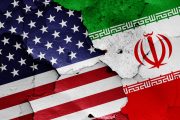
Russian President Vladimir Putin’s interview with American journalist Tucker Carlson offered a great opportunity to make people in the West think, Kremlin spokesman Dmitry Peskov told the TASS news agency on Saturday, February 10.
Peskov claimed the two-hour interview, which largely dealt with ties between Moscow and Kyiv, made it possible for Putin to be heard in the West.
Asked about the interest the interview has ignited, garnering over 100 million views in just one day on Carlson’s X account (formerly Twitter) alone, the spokesman replied that the numbers do not necessarily amount to universal support from viewers.
“We cannot expect that our point of view will receive support. The main thing for us is that our president is heard. And if he is heard, this means more people will think about whether he is right or not. They will think, at least,” Peskov stated.
The spokesman also alluded to Putin’s comments during the interview when he admitted that it was challenging to withstand Western propaganda, claiming the United States and Britain control the major media outlets.
“The Anglo-Saxons, one way or another, own all the largest broadcasters, all the largest newspapers, and so on. And against this background, the main thing is to give people the opportunity to become acquainted with our point of view. And in this regard, this is a very good opportunity.”
The interview, which was published on Thursday, February 8, was the first sit-down between a U.S. journalist and the Russian president since the start of the conflict between Moscow and Kyiv in early 2022. It dealt with a wide range of topics, while largely revolving around the ongoing hostilities. The Russian president also offered a lengthy review of the centuries of shared history between Russia and Ukraine, arguing that the latter has been long used by the collective West to provoke Moscow after the fall of the USSR.
In a previous post on X earlier this week, Carlson lambasted Western media outlets for lying to “their readers and viewers” by championing Kyiv’s stance while ignoring Russia’s.
“That’s wrong. Americans have the right to know all they can about a war they are implicated in,” he said.
The Biden administration and the U.S. corporate media alike have responded with ire over the interview that Putin gave to Carlson, Russian Foreign Ministry spokeswoman Maria Zakharova claimed.
Earlier, Peskov stated that professional jealousy had driven the hostile reaction from some of Carlson’s colleagues in the press.
Speaking to Russia’s Izvestia newspaper on Friday, February 9, Zakharova said: “This is phenomenal. Their reaction reveals the mendacity of their approaches so much that, frankly speaking, you can’t believe it.”
Per the spokeswoman, “They’ve had a hysterical fit — the White House, the Department of State, all the mainstream media are shouting at the top of their lungs one thing only: don’t watch [President Putin’s interview], and that an American journalist shouldn’t conduct the interview.”
She added that such behavior undermined Washington’s portrayal of itself as a beacon of morality, human rights, democracy, and freedom of speech.
During a press briefing on February 9, Peskov noted that the “high interest [in President Putin’s interview] is unquestionable.” He went on to predict that after the dust has settled, “there will be a deep analysis of this interview” in the West.
Speaking during a press briefing on February 8 before the interview’s release, Coordinator for Strategic Communications at the National Security Council John Kirby urged his compatriots not to “take at face value anything [President Putin] has to say.”
Former U.S. Secretary of State Hillary Clinton described Carlson as a “useful idiot.” Other public figures have even resorted to asking the U.S. government to ban Carlson from returning to the country.
The United States has not shown a readiness to talk to Russia, and apparently lacks the “political will” to do so, Peskov told TASS on February 10.
He made the comments when asked whether the interview that Putin gave to Carlson will help communicate Moscow’s stance on various issues to Washington. “The US authorities know our position very well, they are perfectly aware of all of Putin’s main points,” the spokesman stated. “This is not an issue of knowledge, but an issue of desire. The desire to do something to get on to the track of negotiations. We have not yet seen such a desire or the political will for this [in the U.S.].”
However, the Carlson interview provided a great opportunity for Putin to communicate his position to a wider audience in the West, according to Peskov.
“The main thing for us is that our president is heard. And should he be heard, that means more people will think about whether he is right or not. They will think, at least,” he stated when asked about the interest the interview has sparked.
Responding to a question in an interview released by Russian journalist Pavel Zarubin on February 11 regarding the possibility of new talks between both countries, Peskov said that Ukrainian authorities must accept the new conditions no matter how “painful” it might be for them. Should Russia and Ukraine ever actually get back to peace talks, the potential talks will not be the same as those held early in the ongoing conflict, he posited.
“Should we begin the same negotiations, there’s a completely different reality now. And this new reality, no matter how painful it may be for the Kyiv regime, must be recognized,” he underscored.
While Peskov did not provide more details, he presumably alluded to territorial changes, namely the incorporation of the formerly Ukrainian regions of Zaporozhye and Kherson, as well as Donetsk and Lugansk People’s Republics, into Russia following referendums in late 2022.
Kyiv, however, has repeatedly pledged to recapture all its former territories from Moscow, including Crimea, which broke away from Ukraine in the aftermath of the 2014 Maidan coup and subsequently joined Russia.
The March 2022 negotiations between Moscow and Kyiv culminated in the signing of a preliminary agreement between the two nations in Istanbul. The deal mandated Russia to withdraw its troops from around the Ukrainian capital, but Kyiv violated the agreement almost immediately after it had been signed.
As per recent revelations by David Arakhamia, the leader of Volodymyr Zelensky’s party in the Ukrainian parliament and a major negotiator at the botched Russo-Ukrainian talks, then-U.K. Prime Minister Boris Johnson played a key role in contributing to the failure of the talks. As Arakhamia put it, Johnson at the time simply told the Ukrainians to “just continue fighting” and urged them not to sign anything with Russia.
Moscow has repeatedly maintained that it was ready to settle the hostilities through negotiations, blaming the lack of any diplomatic effort on the matter on Kyiv. Putin reiterated the Russian position during his interview with Carlson last week.
“The President of Ukraine [Zelensky] has legislated a ban on negotiating with Russia. He signed a decree forbidding everyone to negotiate with Russia. But how are we going to negotiate if he forbade himself and everyone to do this? We know that he is putting forward some ideas about this settlement. But in order to agree on something, we need to have a dialogue,” Putin stated.




